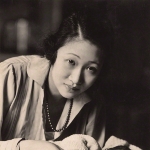Background
Vi Kyuin Wellington Koo was born on January 29 in 1887 Shanghai, China.

顾维钧
Vi Kyuin Wellington Koo was born on January 29 in 1887 Shanghai, China.
Koo attended Saint John's University, Shanghai, and Columbia College, where he was a member of the Philolexian Society, a literary and debating club, and graduated in 1908. In 1912 he received his Doctor of Philosophy in international law and diplomacy from Columbia University
Vi Kyuin Wellington Koo was a diplomat under the Republic of China, representative to the Paris Peace Conference of 1919, Ambassador to France, Great Britain, and the United States, participant in founding the League of Nations and the United Nations and judge on the International Court of Justice at the Hague from 1957 to 1967. Between October 1926 and June 1927, while serving as Minister of Foreign Affairs, Koo briefly held the concurrent positions of acting Premier and interim President of the Republic of China. Koo is the first and only Chinese head of state known to use a Western name publicly.
Vi Kyuin Wellington was one of the essential figures behind the creation of modern China. He was involved in virtually every foreign and domestic crisis in twentieth-century China. Koo entered government service in 1912 intent on revising the unequal treaty system imposed on China in the nineteenth century, believing that breaking the shackles of imperialism would bring China into the "family of nations." At the Paris Peace Conference in 1919, before the Western powers and Japan, he demanded that Japan return Shandong to China. He also called for an end to imperialist institutions such as extraterritoriality, tariff controls, legation guards, and lease holds. The Western powers refused his claims and, consequently, the Chinese delegation at the Paris Peace Conference was the only nation that did not sign the Treaty of Versailles at the signing ceremony. He represented China at the League of Nations to protest the Japanese invasion of Manchuria.
His pursuit of this nationalistic agenda was immediately interrupted by Chinese civil war (1927-1950) and Japanese imperialism during World War I.
As the Chinese Ambassador to the United States, he focused on maintaining the alliance between the Republic of China and the United States, when the Kuomintang began losing to the Chinese Communists and had to retreat to Taiwan.
Vi Kyuin Wellington Koo played a major role in expanding China's relationships with the W. Founder of the modern Chinese foreign service, he was instrumental in negotiating the end of the "unequal treaties," a series of agreements China had signed with Western powers under threat of force in the mid-nineteenth century. Koo held the posts of ambassador to France, Great Britain, and, for ten years, the United States - he was the youngest ranking diplomat to come to the United States. Koo is also credited with China's participation in founding the United Nations, serving as his country's signatory of the United Nations charter. He further extended his international role in the last phase of his career, when he served as judge and vice president of the International Court of Justice at The Hague from 1957 to 1967.
In 1908, Koo married his first wife, Chang Jun-e. They divorced prior to 1912.
Koo's second wife, Tang Pao-yueh "May", was the youngest daughter of the former Chinese prime minister Tang Shaoyi and a first cousin of the painter and actress Mai-Mai Sze. Their marriage took place soon after Koo's return to China in 1912. She died in an influenza epidemic in 1918. They had two children: a son, Teh-chang Koo (1916–1998), and a daughter, Patricia Koo (b. 1918).
Koo's third wife was Oei Hui-lan. She married Koo in Brussels, Belgium in 1921. (She was reportedly previously the wife of Count Wittingham or of Count Hoey Stoker.) Much admired for her adaptations of traditional Manchu fashion, which she wore with lace trousers and jade necklaces, Oei Hui-lan was one of two legitimate children, out of a total of 42 acknowledged children, born to the Peranakan Chinese sugar magnate Majoor Oei Tiong Ham. She wrote two memoirs: Hui-Lan Koo (Mrs. Wellington Koo): An Autobiography (written with Mary Van Rensselaer Thayer, Dial Press, 1945) and No Feast Lasts Forever (written with Isabella Taves, Quadrangle/The New York Times, 1975). Koo had two sons with her: Yu-chang Koo (1922–1975, also Wellington Koo, Jr.) and Fu-chang Koo (1923–1977, a.k.a. Freeman Koo).
On 3 September 1959, Koo married his fourth wife Yen Yu-yun (1905–2017), the widow of Clarence Kuangson Young. He had three stepdaughters from this marriage: Genevieve (wife of American photographer and film director Gordon Parks), Shirley and Frances Loretta Young.
Period of marriage: 1908-1912.
Period of marriage: 1913-1918.

Period of marriage: 1920-1958.
Period of marriage: 1959-1985.
(1916–1998)
(b. 1918)
(1922–1975, also Wellington Koo, Jr.)
(1923–1977, a.k.a. Freeman Koo)
